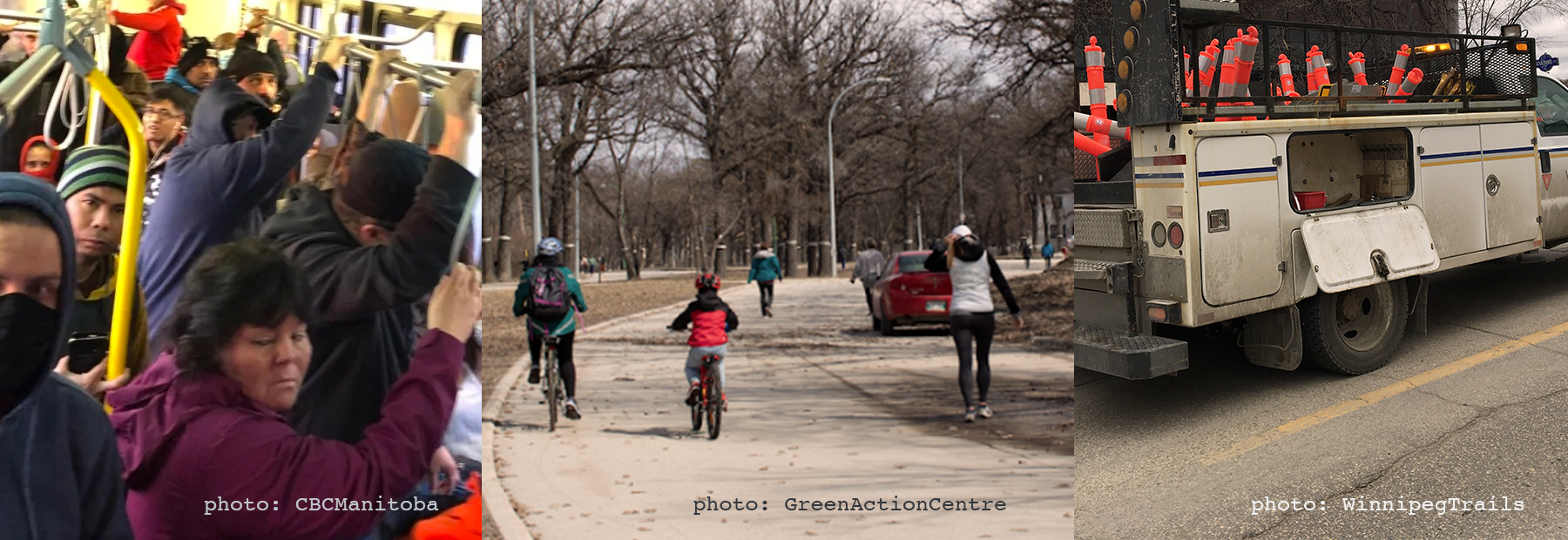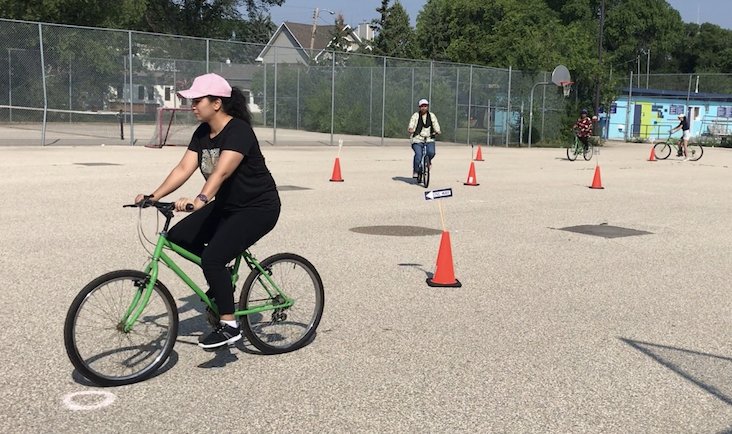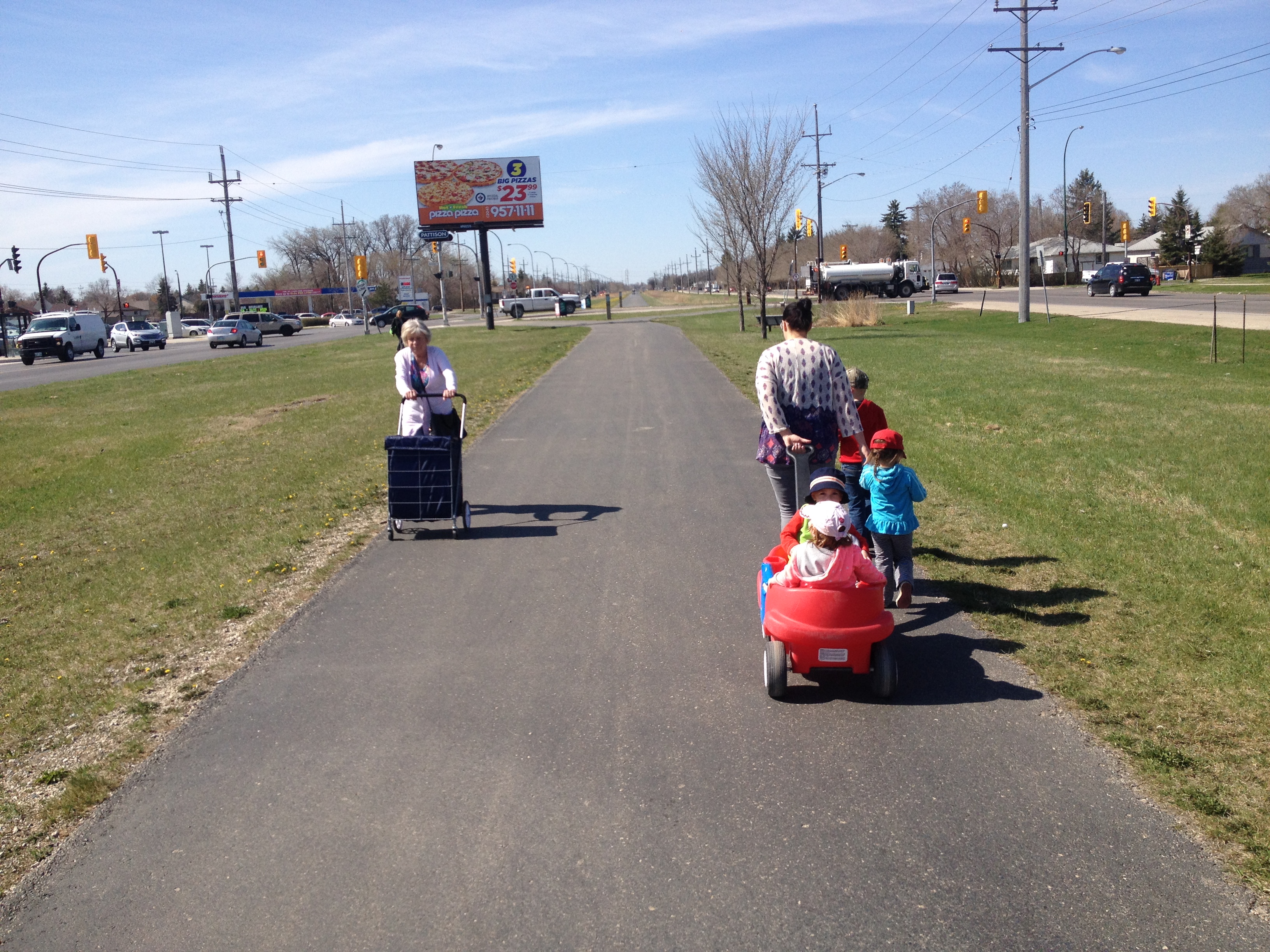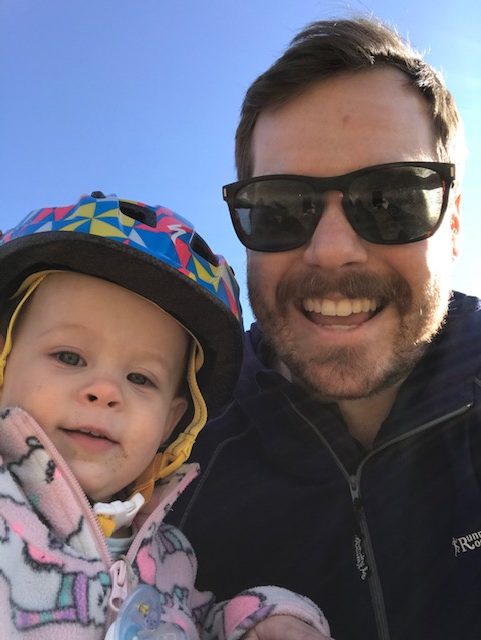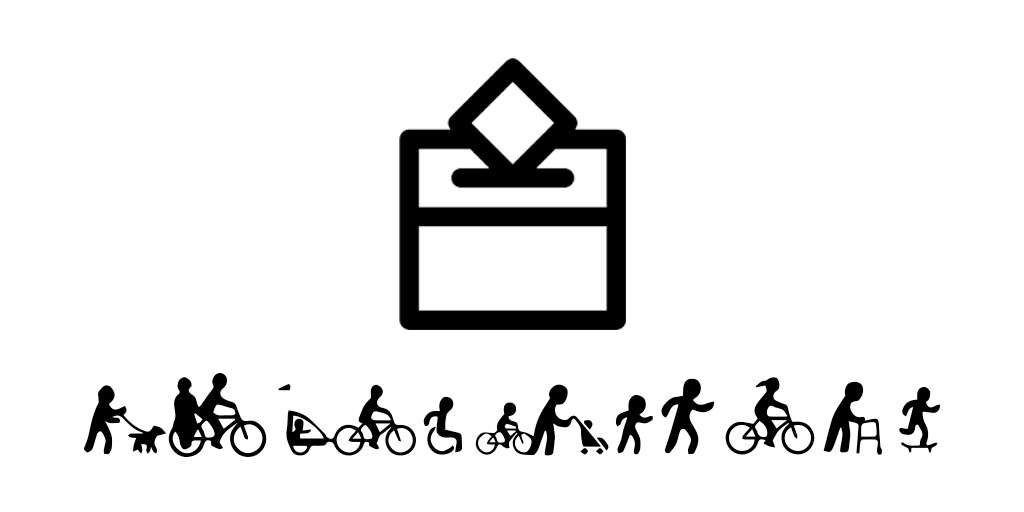What does an equitable and urgent response to the pandemic look like? With limited recreation options for children, schools closed, buses being scary to use until we are sure COVID-19 is over and a global recession looming for large numbers of people- some of the most vulnerable people are going to be asked to do even more with less.
Winnipeg Trails believes the City of Winnipeg must use what it knows about areas of high need neighbourhoods to craft an emergency response to issues made more acute by the recent pandemic – especially outdoor space near every house and new ways to travel between them.
In response to recent High Needs Areas analysis done by the City of Winnipeg that happened to arrive just in time, Winnipeg Trails has 5 recommended courses of action starting with:
Recommendation 1. Recognizing an emergency in transport/mobility, children’s mental health and food security in high needs areas. Put this as our top priority and develop a rapid response plan that prioritizes solutions that target all of the above..
Post-pandemic, we need rethink and reuse the space between houses as though they are parks-in-waiting. We need to single out solutions that act with urgency. Our government must begin to look at streets themselves as trails just like young people for whom it is all they know, and experts like the team at Winnipeg Trails. See asphalt as though it wants to be a garden. Look at places to park cars as places to grow gardens and for seniors to sit. Look at speed changes as just one step in the transition from a place that is purely somewhere you move through to somewhere that can be enjoyed and shared.
We have no choice. Think about transportation as though it is best served when thought of as recreation too – something to be savoured and focus on the few available options that are free.
Then, act fast.
Recommendation 2 – Work with an existing and keen network of community orgs to permanently convert residential street space to more equitable shared space, starting in high needs areas, to achieve fast, cheap traffic calming and food security. Move to provide on street container gardening with any community that wants it which has access to water. This will help address physical distancing, food security, social cohesion and transport all at once. As appropriate, consider appointing Winnipeg Trails to a leadership role to leverage existing relationships and trust in the community to do that expeditiously.
Recommendation 3. Reduce residential street speed limits. This is the most cost effective affecting the largest number of road space in vulnerable areas and should be taken immediately for ethical and practical reasons.
Recommendation 4. Provide a temporary transit backup plan for as many people as possible. The quickest way to do that with existing roadspace is a connected network of temporary low stress, separated bicycle facilities to reduce pressure on transit and provide families living in these communities with access to rivers and parks. This helps a large number of Winnipeggers who have transit trips less than 7km and access to working bicycles. It also aligns with Transport planning polling that showed 67% of people would either bike more or a lot more with dedicated facilities on major streets.
Recommendation 5. Reprioritize what we request from other levels of government. De-emphasize the $5M threshold on projects in our Infrastructure Plan and focus solely on R.O.I., adding special consideration for R.O.I. flowing back to neighbourhoods of higher needs. Prioritize all of the above by using 80% cost-sharing funding recently announced by the Government Canada. Identify and speed up shovel worthy and low cost projects with multiple positive outcomes.
More Background:
Winnipeg Trails’ mission is to speed up access to transportation and recreation options to everyone. We value equitable access to nature and physical and mental health. We work with community organizations from the inner city to the farthest flung suburb.
A Committee of City Council (Protection, Community Services and Parks) has taken what we believe a positive step forward by seeking to define neighbourhoods to whom we should give priority in the development of new programs and infrastructure. The report is called Defining Higher Needs Neighbourhoods and its worth a look (See Item 2 here)
Have a look at the overlap between areas with higher needs and high pressure to use transit:
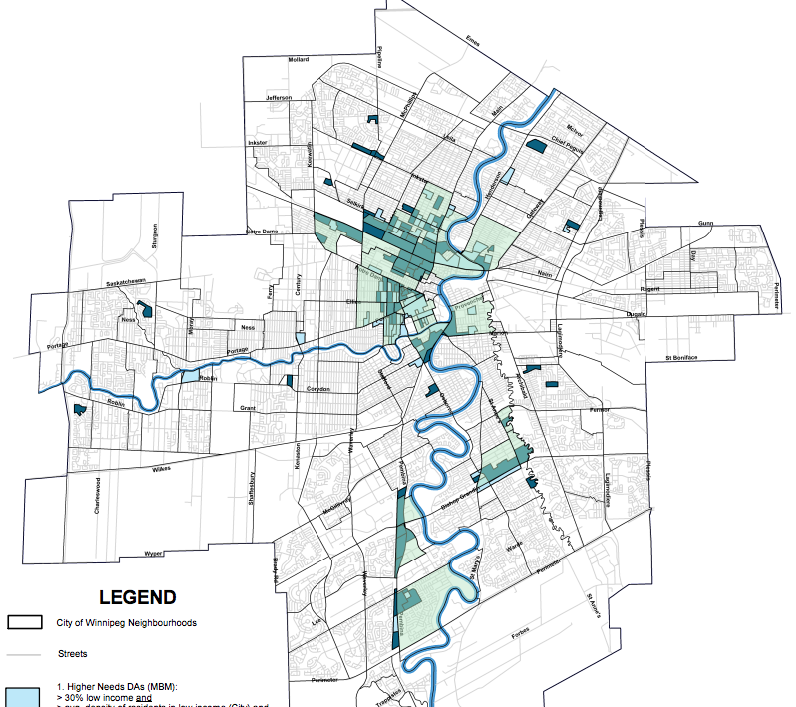
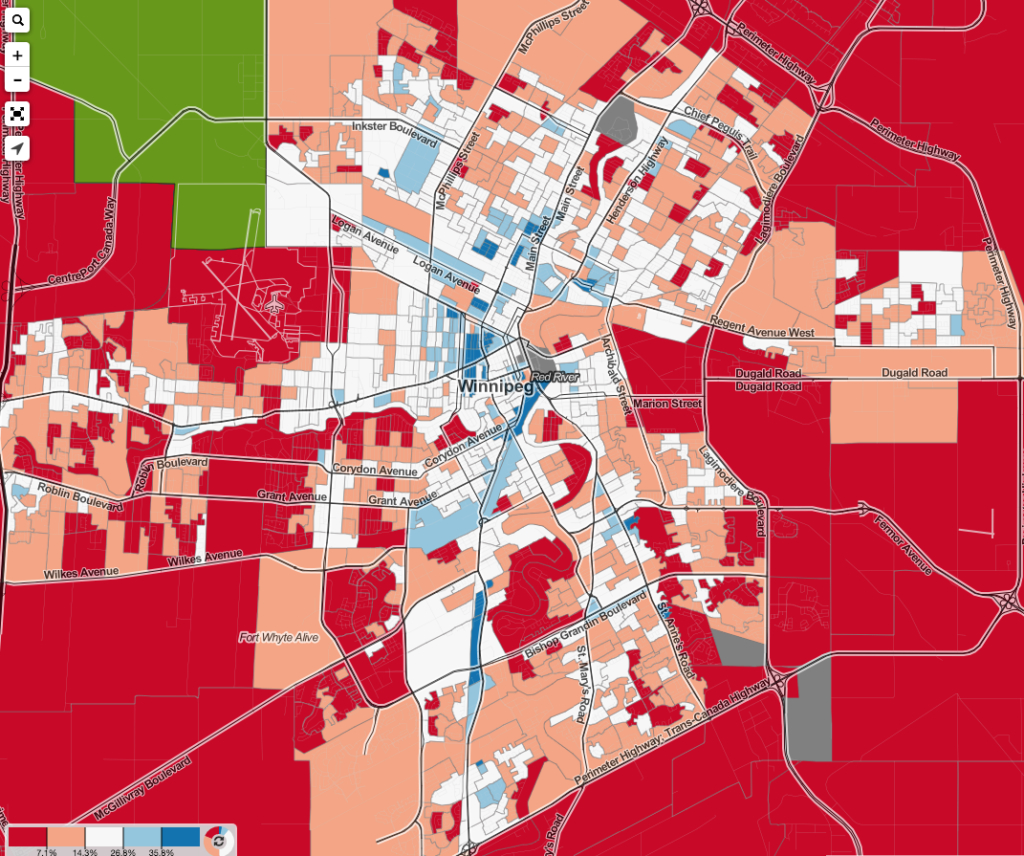
The last two paragraphs of the City of Winnipeg’s Defining Higher Needs report:
” This approach of using higher needs areas as a lens for decision making may also include:
Target areas for service review and special program development (i.e. designation of staff positions for Indigenous hiring, development of recreation and sport leadership programs for youth, partnerships and shared governance opportunities, etc.)
Priority areas for enhanced community collaboration to better understand and identify specific needs and opportunities (i.e. special public engagement areas in the Poverty Reduction Strategy)
Focusing initiatives and investment in order to improve health and wellbeing outcomes. (i.e. future applications to the Investing in Canada Infrastructure Program (ICIP), capital investment for facility improvements or development of new facilities, extended facility operating hours, free or low cost services, localized registration, etc.)
Until the Poverty Reduction Strategy has been developed and adopted, the use of this analysis in ongoing work as described above will help shape and focus the work of Community Services, particularly in areas of higher needs.”

